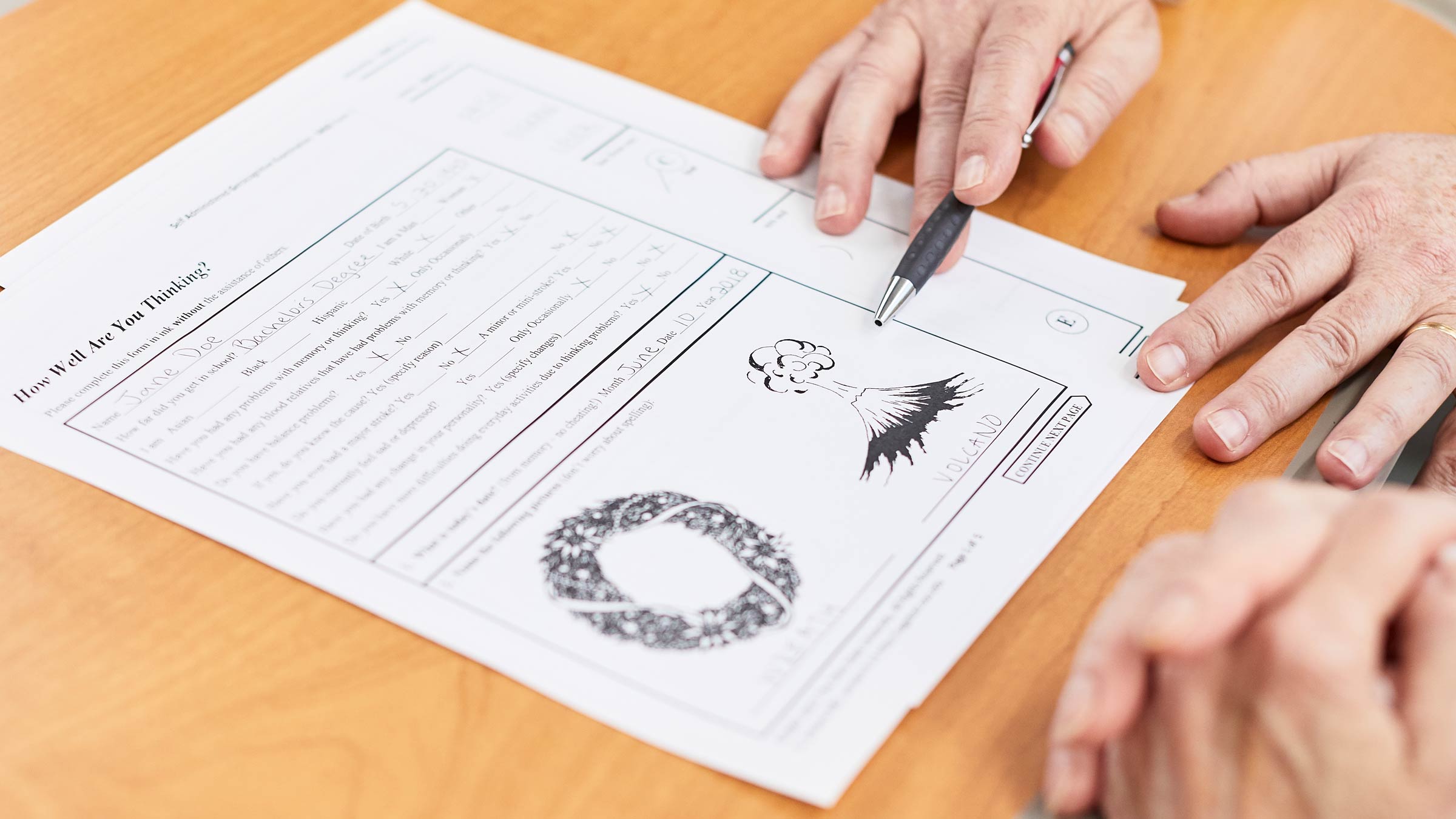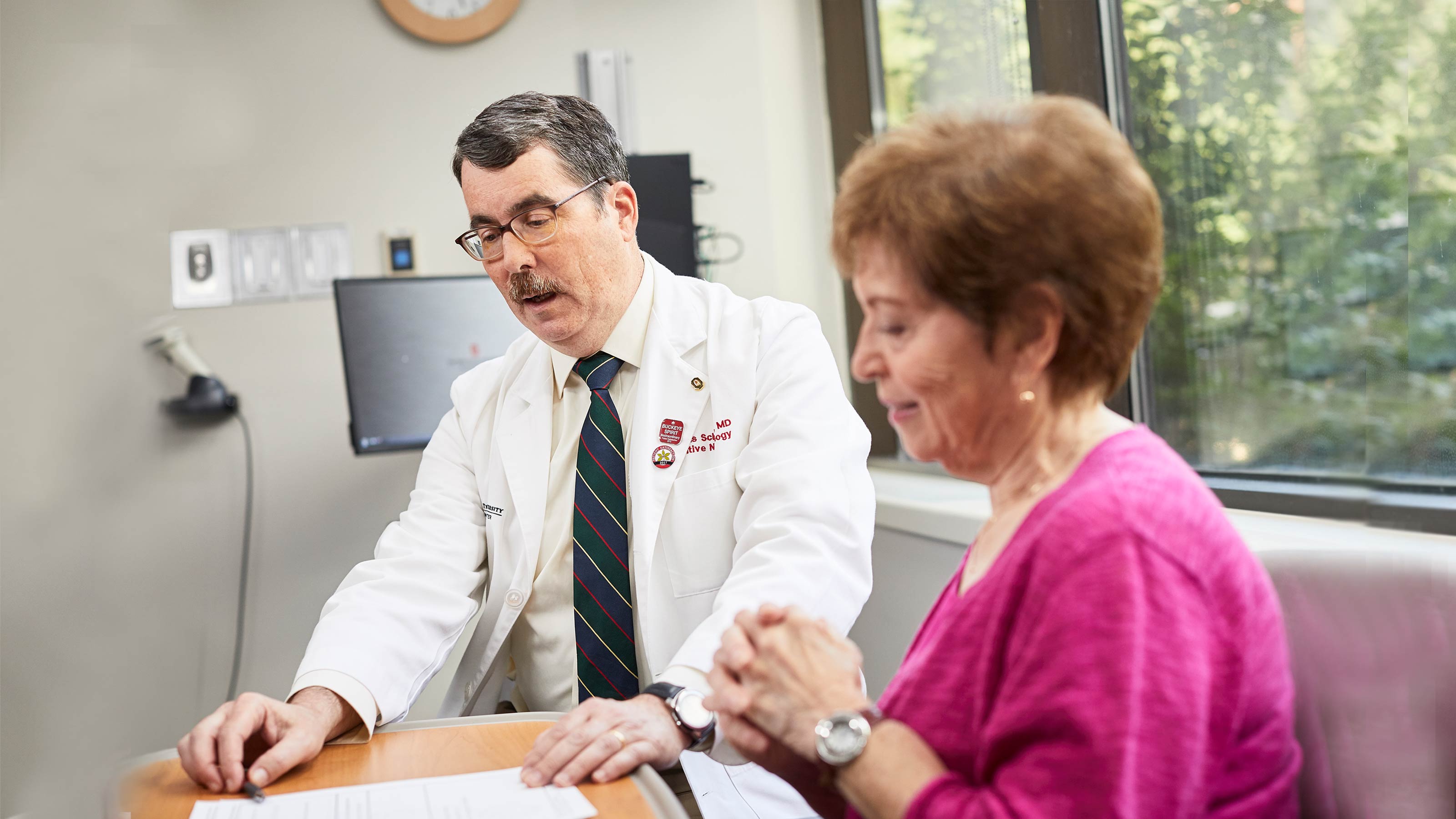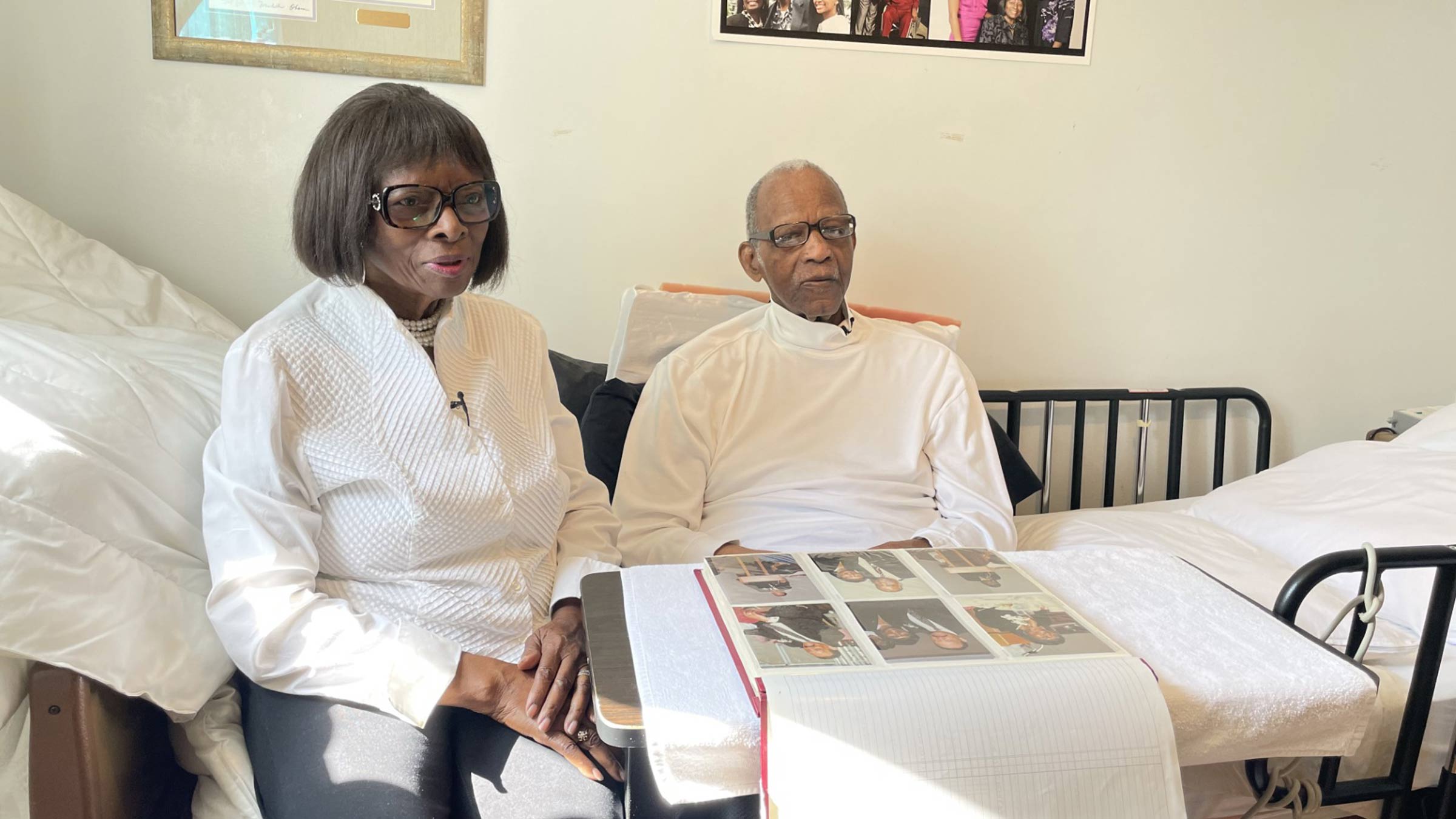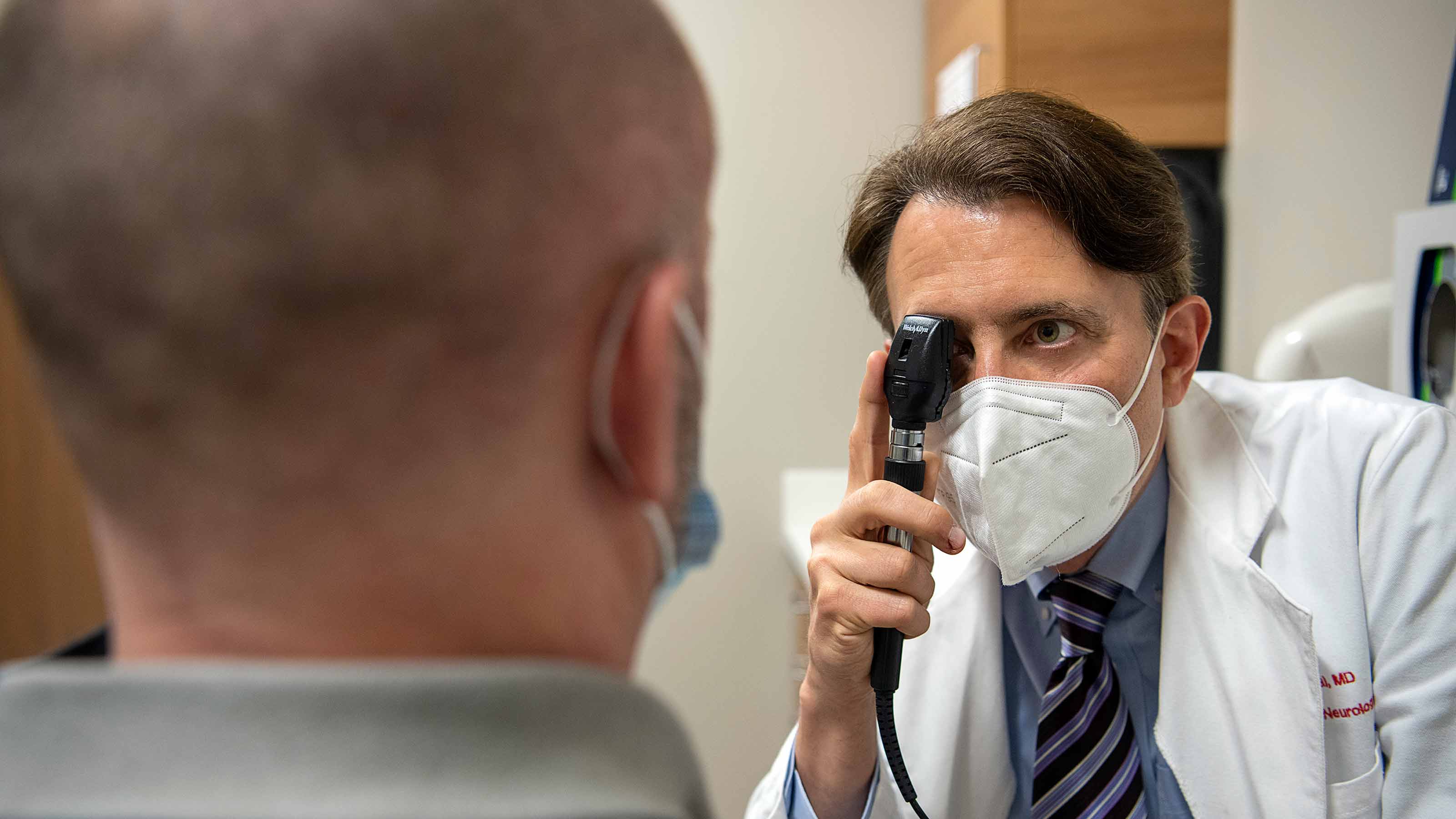
Expert Guide to Dementia
Memory loss and cognitive decline can be challenging for the person experiencing them and their loved ones alike. And it can be difficult to navigate the paths to diagnosis and timely treatment. The neurology expertise at Ohio State is unmatched nationwide, and our clinicians here have provided some extra advice and answers to common questions about memory disorders including dementia.
Improving brain health

Diagnosis
For caregivers of people with dementia
Research and treatment
How dementia works

Take the next step in memory disorder evaluation
Ohio State’s Memory Disorders Clinic provides customized services to both patients and their families, including behavioral neurology and neuropsychiatry.
Learn more


















